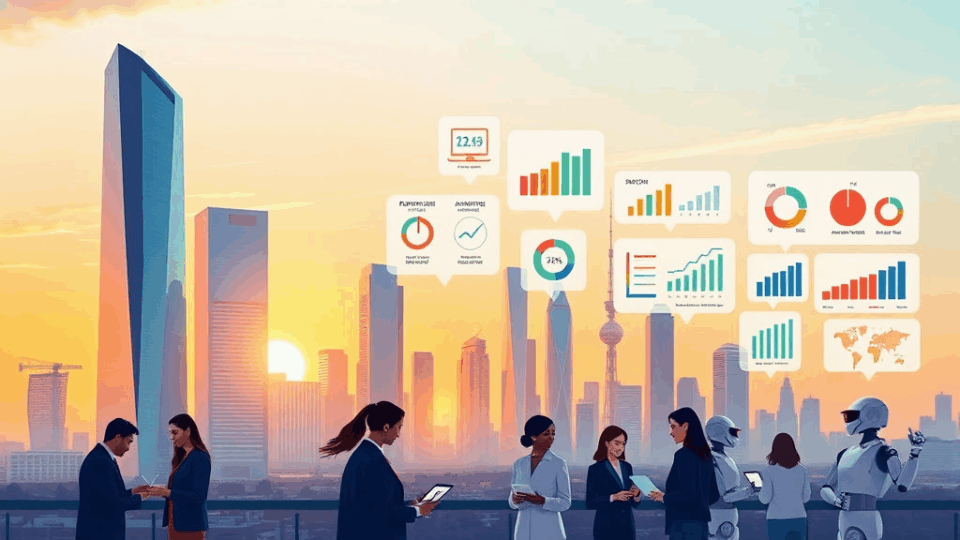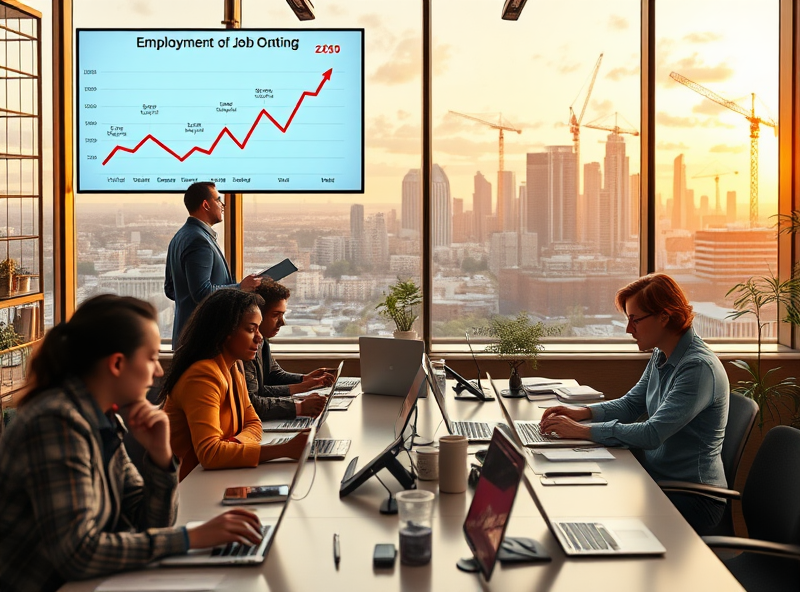
Key Labor Market Trends in 2025
Labor Market Recovery: A Gradual Rebound

As we step into 2025, the labor market is showing signs of a gentle but steady recovery. After years of uncertainty brought on by the pandemic and global economic shifts, employment trends are finally stabilizing. This gradual rebound is marked by increased hiring in key sectors like healthcare, technology, and green energy, as well as a renewed focus on remote and hybrid work models.
One of the most encouraging signs is the resurgence of small and medium-sized businesses, which are beginning to hire again as consumer confidence grows. Additionally, job seekers are benefiting from upskilling opportunities and digital training programs that have become more accessible than ever before. Governments and private sectors alike are investing in workforce development, helping people transition into in-demand roles.
While the recovery may not be rapid, it is sustainable. This slow and steady progress allows for a more resilient job market, where both employers and employees can adapt to long-term changes. For individuals, this means it’s a great time to reassess career goals, invest in new skills, and explore emerging industries. Remember, every small step forward is a step toward a more stable and fulfilling work life.
Wage Growth & Inflation Pressures

As we move into 2025, one of the most important labor market trends to watch is the relationship between wage growth and inflation pressures. Over the past few years, workers have seen a rise in wages, driven by a tight labor market and increased demand for skilled professionals. While this is great news for employees, it also brings challenges for employers and the broader economy.
Wage growth can empower workers, helping them better manage the rising cost of living. However, when wages rise too quickly, it can contribute to inflation—especially if productivity doesn’t keep pace. In 2025, many businesses are expected to focus on balancing fair compensation with sustainable growth. This means investing in employee development, automation, and flexible work models to boost productivity while keeping inflation in check.
For job seekers and employees, this trend highlights the importance of upskilling and staying adaptable. Those who continuously improve their skills will be in a stronger position to negotiate better pay and job security. For employers, transparent communication about compensation and inflation impacts will be key to maintaining trust and morale.
Understanding this dynamic helps all of us make smarter financial decisions, whether you’re planning a career move, managing a household budget, or running a business. Staying informed and proactive is the best way to thrive in the evolving labor market of 2025.
AI, Skills-Based Hiring & Industry Shifts

As we look ahead to 2025, the labor market is undergoing a meaningful transformation driven by artificial intelligence, a growing emphasis on skills-based hiring, and significant shifts across industries. These changes may feel overwhelming, but they also bring exciting opportunities for both job seekers and employers.
AI is reshaping how companies operate and hire. From automating repetitive tasks to analyzing candidate data more efficiently, AI helps recruiters focus on what truly matters—finding the right talent. Job seekers can benefit too, as AI-driven platforms can match them with roles that align with their unique skills and experiences, not just their job titles.
Skills-based hiring is gaining momentum as employers realize that traditional degrees don’t always reflect a candidate’s true potential. Instead of focusing solely on educational background, companies are now prioritizing practical skills, certifications, and hands-on experience. This opens doors for a more diverse workforce and gives people from non-traditional backgrounds a fair shot at meaningful careers.
Meanwhile, industry shifts are creating new job categories while transforming existing ones. For example, the rise of green energy, remote work infrastructure, and digital healthcare are generating demand for new skill sets. Workers who embrace lifelong learning and adaptability will be best positioned to thrive in this evolving landscape.
In short, 2025 will reward those who stay curious, keep learning, and remain open to change. Whether you’re entering the workforce, switching careers, or hiring talent, focusing on skills and staying informed about industry trends will help you succeed in the future of work.
Demographic Challenges & Workforce Strategies

As we look ahead to 2025, one of the most pressing labor market trends is the growing impact of demographic shifts. Aging populations, declining birth rates, and changing migration patterns are reshaping the global workforce. These changes present both challenges and opportunities for employers, policymakers, and workers alike.
One major concern is the shrinking working-age population in many developed countries. As baby boomers retire, there are fewer younger workers to replace them, leading to talent shortages in key industries like healthcare, manufacturing, and technology. To address this, companies are increasingly investing in workforce strategies that prioritize reskilling, flexible work arrangements, and inclusive hiring practices.
For example, businesses are creating age-friendly workplaces to retain older employees longer, while also launching mentorship programs that pair experienced workers with younger talent. Governments are also playing a role by encouraging immigration to fill labor gaps and supporting lifelong learning initiatives to help workers adapt to new technologies.
Additionally, the rise of remote work has opened doors for a more diverse talent pool, allowing companies to tap into skilled professionals regardless of their location. This flexibility is especially valuable in regions facing demographic decline, as it helps bridge the gap between labor supply and demand.
By proactively addressing demographic challenges with thoughtful workforce strategies, we can build a more resilient and inclusive labor market that benefits everyone. It’s not just about filling jobs—it’s about creating meaningful, sustainable careers for people of all ages and backgrounds.
답글 남기기